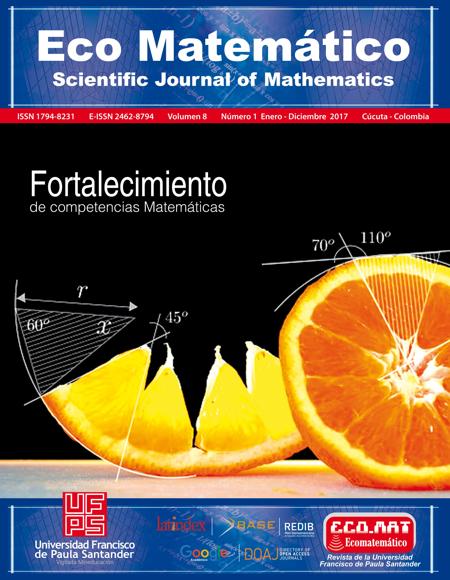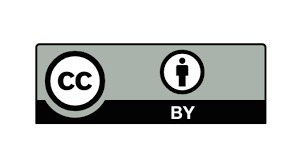Strengthening of the mathematics competence problem solving in high school education, through learning based on problems (LBP)
Fortalecimiento de la competencia matemática resolución de problemas en educación básica secundaria, mediante el aprendizaje basado en problemas (ABP)
Main Article Content
In mathematics teaching, the implementation of strategies which permit the student to link to his immediate context is indispensable, aiming to be able to develop, in a meaningful way, his learning process. This research is developed based on Learning Based on Problems methodology (LBP), taking as an objective to analyze how it influences on the strengthening of the mathematics competence problem solving. Carried out in a quantitative approach and pre-experimental design, a descriptive analysis of the ability of the students to solve problems was done before the methodology, then, the results were compared both individually and collectively gathered in the test and post-test; and based on this, it was determined on what aspects this methodology strengthen problem solving competence in high school students. The results were to conclude that the problem-solving competence in the area of mathematics could be strengthened, in the ninth grade, being reflected in the improvement of students’ abilities to solve problems in the area and in fundamental geometric figures. The above evidenced in the results of the post test, this serves as taken as a base so that the students can find new knowledge more interesting, promoting the investigation in real contexts, making the meaningful learning easier and generating changes in the reasoning level.
Downloads
Article Details
Barrows H.S. (1986) A Taxonomy of problem based learning methods, Medical Education, 20, 481-486.
Boscán, M., Klever, K. (2012). Metodología basada en el método heurístico de Polya para el aprendizaje de la resolución de problemas matemáticos. Revista Escenarios, 10 (2), 7-19.
Díaz Barriga, F, (2006). Aprendizaje Basado en Problemas. De la teoría a la práctica. Revista electrónica: Perfiles Educativos, 28, 111.
George Polya (1945). Cómo plantear y resolver problemas [título original: How To Solve It?]. México: Trillas. 215 pp.
Harskamp, E. and Suhre, C. (2006). Improving mathematical problem solving: A computerized approach. En: Computers in Human Behavior, 22.
Hernández, R., Fernández, C., & Baptista, P. (2010). Metodología de la investigación. México: Mc Graw Hill.
Hidalgo, H., Mera, E., López, J. (2015). Aprendizaje basado en problemas, como potencializador del pensamiento matemático. (Tesis de Maestría en Educación desde la Diversidad, Universidad de Manizales, Manizales). Recuperado de http://190.242.114.6/vufind/Record/RUM_b15910fe7297ab76646a17a89eb9a22c
Icfes interactivo. 2016. Página web oficial http://www2.icfesinteractivo.gov.co/ReportesSaber359/
Moust, J; Bouhuijs, P; Schmidt, H. (2007). El aprendizaje basado en problemas: Guía del estudiante. Cuenca: Ediciones de la UCLM
Ministerio de Educación Nacional (MEN). (2003). Estándares básicos de competencias en matemáticas. Recuperado de http://eduteka.icesi.edu.co/pdfdir/MENEstandaresMatematicas2003.pdf
Ministerio de Educación Nacional (MEN). (2010). Pruebas Saber 3º, 5° y 9°. 04 de octubre de 2016, Sitio web: http://www.mineducacion.gov.co/1759/w3-article-244735.html
Ministerio de Educación Nacional (MEN). (2014). Lineamientos Curriculares Matemáticas. Magisterio, Bogotá. Tomado de http://www.mineducacion.gov.co/1621/articles-89869_archivo_pdf9.pdf
Organización para la Cooperación y el Desarrollo Económicos (OCDE). PISA 2105 resultados clave. OCDE. 2016. https://www.oecd.org/pisa/pisa-2015-results-in-focus-ESP.pdf
Perales, F. (1993). La resolución de problemas. Una Revisión Estructurada, 11(2), 170-178. Recuperado de: https://ddd.uab.cat/pub/edlc/02124521v11n2/02124521v11n2p170.pdf
Polya, G. Estrategias para la solución de problemas. Recuperado de http://www.winmates.net/includes/polya.php (octubre 2009).
POLYA, G. (1980). On Solving Mathematical Problem in High Scholl. En KRULIK, S. y REIS, R. (Eds.) Problem Solving in School Mathematics. NCTM: Reston. [92]







